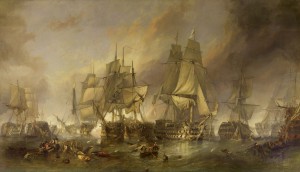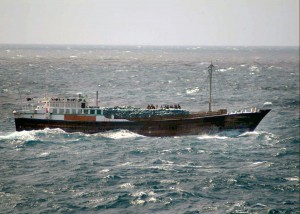By Dr Hans-Georg Ehrhart and Kerstin Petretto (Institute for Peace Research and Security Policy, Hamburg)
Conflict ridden and failing states like Somalia as well as the scourge of piracy emanating from its coasts are textbook examples for the truism that dealing effectively with today’s transnational threats demands strong international cooperation and a functioning multi-level governance in the field of security. While the political process on tackling the intractable Somali crisis has been staggering over years, the increasing attacks on merchant vessels in the Gulf of Aden, the Somali Basin and the wider Indian Ocean have resulted in unprecedented activities of a multitude of international actors in the maritime sphere and beyond.
 The European Union and its Member States play a significant role in this endeavour. Root causes and symptoms of the Somali crisis shall be tackled by making use of the variety of instruments the EU has at its disposal, all interlinked together in what has been called a comprehensive approach. This approach aims to strategically combine political dialogue, humanitarian and developmental aid with efforts to increase security within the country. Security assistance is firstly provided by the training of security forces via the European Training Mission (EUTM) in Uganda and secondly by deterring, preventing and repressing acts of piracy via EU Naval Force (EUNAVFOR) Atalanta – the first naval operation ever implemented within the framework of the Common Security and Defence Policy (CSDP). Furthermore, capacities of Somalia as well as its neighbouring states to prosecute and detain pirates ought to be enhanced and strengthened. The “Strategic Framework for the Horn of Africa”, adopted by the Council in November 2011 as well as the appointment of a Special Representative for the Horn of Africa is furthermore to interlink the engagement in Somalia with the EU’s policies in the region.
The European Union and its Member States play a significant role in this endeavour. Root causes and symptoms of the Somali crisis shall be tackled by making use of the variety of instruments the EU has at its disposal, all interlinked together in what has been called a comprehensive approach. This approach aims to strategically combine political dialogue, humanitarian and developmental aid with efforts to increase security within the country. Security assistance is firstly provided by the training of security forces via the European Training Mission (EUTM) in Uganda and secondly by deterring, preventing and repressing acts of piracy via EU Naval Force (EUNAVFOR) Atalanta – the first naval operation ever implemented within the framework of the Common Security and Defence Policy (CSDP). Furthermore, capacities of Somalia as well as its neighbouring states to prosecute and detain pirates ought to be enhanced and strengthened. The “Strategic Framework for the Horn of Africa”, adopted by the Council in November 2011 as well as the appointment of a Special Representative for the Horn of Africa is furthermore to interlink the engagement in Somalia with the EU’s policies in the region.
Despite all these efforts and despite close cooperation with many partners such as the United Nations, the African Union, and the United States, the Somali crisis is however not even close to being solved. Somali pirates continue to pose a risk to global maritime shipping. It is also more than doubtful whether – after more than a dozen similar events – the London Conference on Somalia that took place on February 23rd will be a significant game changer in this regard. Read more →



